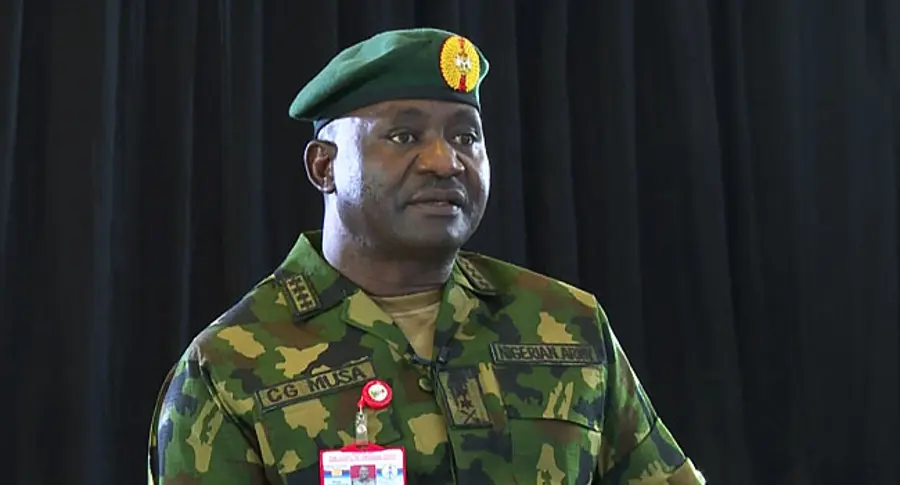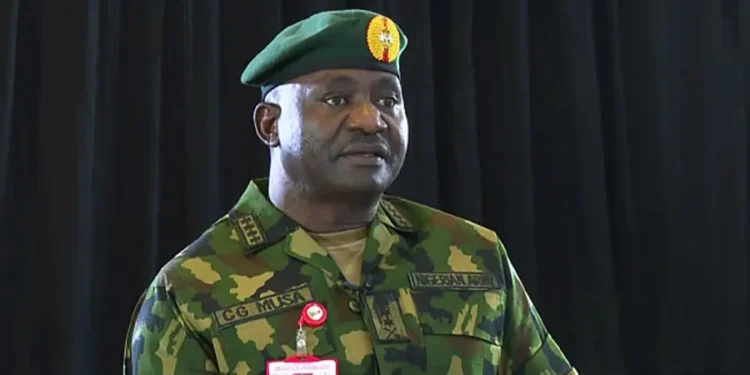

The Chief of Defence Operations, Major General Emeka Onumajuru, has claimed that the Nigerian Armed Forces are not part of any arrangement to pay money to bandits operating across the country.
Speaking on Channels TV on Tuesday, Onumajuru said such payments have proven ineffective in addressing insecurity.

“The armed forces of Nigeria do not support the payment of money to criminal groups. The armed forces of Nigeria are not part of that arrangement,” he stated.
According to him, instead of monetary inducements, the military is pursuing a national Disarmament, Demobilisation and Reintegration (DDR) programme anchored around Operation Safe Corridor in Gombe State for the North-East, and Zamfara State for the North-West.
“However, the armed forces of Nigeria have a DDR programme with other stakeholders, the Ministry of Justice, and the Office of the National Security Advisor for criminals that have shown remorse and want to toe the line for peace, to surrender their weapons, undergo a thorough profiling to ensure the extent of their culpability, and then they are transferred for the DDR programme,” he explained.
He added that the DDR framework provides an alternative for those seeking to renounce criminality.

“The essence of this national framework is for bandits who clearly want another route to leaving criminality. You surrender your weapons, and you are profiled in detail.
“Those who are found really culpable face the law. Now, this is coordinated by the Ministry of Justice. Don’t forget that some of the people were forcibly conscripted, kept in the bush for God knows why.
“Once it is decided that this set of people are not really culpable after a detailed profiling, they are transferred to the DDR centres in Gombe, and they start going through the DDR process,” Onumajuru said.
His comments come after former Kaduna State governor, Nasir El-Rufai accused the Nigerian government of paying bandits.
“If the Office of the National Security Adviser(ONSA) thinks Nigerians are not following its unclear and incompetent management of terrorism and banditry in Northern Nigeria and beyond, in collaboration with a certain senator, also from the North, then it is high time it carried out an in-depth evaluation and review of its actions,” El-Rufai wrote in a statement on X on Monday night.
He also criticised payments allegedly being made by government officials to bandits in several northern states.
“We are not the first to reveal the government’s ongoing greasing of the palms of non-state actors in Kaduna, Katsina, Zamfara, Sokoto, Niger, Kebbi, and other states. No matter how incompetent in security matters he may be, the National Security Adviser cannot be oblivious of videos and audios of traditional rulers, community leaders and religious leaders condemning the payments made by the state to bandits. The attempt at denial falls flat as many citizens in the affected states have been following the counter-replies by community leaders and clerics on the issue of government paying bandits.”
El-Rufai, during a television interview on Sunday, claimed the ONSA coordinated a policy of payments to criminals.
However, in a statement issued on Monday in Abuja, ONSA described the claim as baseless, insisting no such practice exists under the current administration.
The statement, signed by Zakari Mijinyawa, stressed that the government has consistently warned Nigerians against paying ransom, adding that military operations have decimated notorious bandit leaders in Kaduna State, including Boderi, Baleri, Sani Yellow Janburos, Buhari, and Boka.
It further noted that recent arrests of Ansaru leaders and the sacrifices of fallen security personnel were evidence of the government’s commitment to restoring peace in troubled areas like Igabi, Birnin Gwari, and Giwa.
ONSA urged political figures to stop dragging national security institutions into partisan controversies, emphasising that the fight against banditry should remain a collective effort rather than a political battleground.










